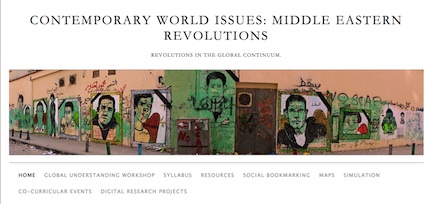Sara Parent-Ramos, Visiting Assistant Professor of Art
Brief description of course:
I am interested in developing a lesson unit that focuses on emergent technologies and sculptural approaches. Unit content will include 3D printing and modeling, digital appropriation/ceramic decals and the impact of the “maker” and “DIY” movement on contemporary artistic practice. This unit will be a part of the Introduction to Sculpture course at Saint Edward’s University.
Brief description of the pedagogical experiment:
Approach:
The created unit will be based on a combination of Mastery Learning, Apprenticeship and Studio learning educational models (Bloom 1971, Guskey 2010, Schon, 1983). The unit will emphasize the importance of varying forms of collaborative artistic practice in contemporary art through hands-on experiential learning.
What will you do:
The developed unit will be based on a Studio Learning Model, with additional lectures, demonstrations and site visits (fab labs , etc.).
Projects:
Project #1: Students will modify an appropriated open source 3d printed object in a manner that conceptually comments on the original design.
Project #2: Students will create a ceramic object with appropriated visual decal imagery.
Project #3: For this collaborative group project students will draft a proposal for a large installation/sculpture that uses the technical approaches introduced in class (3d printing/decals).
How will this improve student learning:
This unit will address the following sculpture SLO’s;
- Demonstrate competence and skill in the use of basic tools, techniques, technologies, and processes within the sculpture discipline.
- Capacity to develop and iterate ideas from initial ideas, to research and through to final project and presentation.
- Evidence of personal reflection on artistic decision making process in verbal and written form.
- Capable of discussing artistic work and process in the context of class readings/podcasts and larger artistic trends.
In particular, this unit will encourage students to;
- Reach beyond the classroom environment to connect with resources
- Engage in collaborative practice
- Give student confidence in working with emerging technologies
How will you test it?
I will judge this units success based upon students written self-reflections, and the quality of the completed projects.
What will be biggest challenge of this experiment?
- The students will need familiarity with collaborative learning and artistic research/planing.
- I will need to get my hands on the technology (software/hardware) needed
- I need to refresh myself on the technology needed for this project
What is your status? What have you accomplished? What work remains before you teach this course?
- I am revamping the Clay I syllabi to include an emphasis on collaborative learnings and artistic research. It is my hope that by emphasizing collaborative learning and artistic research I will empower students to be proactive lifelong learners.
- The director of the library and I have organized a group of eleven faculty members who are interested in 3d printing. We are working on drafting a proposal to ask for additional funds from internal and external sources for the development of 3d printing facilities at Saint Edwards.
- I will be applying for a grant to take a course at the Digital Fabrication Residency in Laurel Maryland in December (2014).

